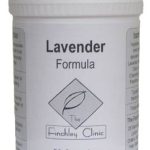Think about it for a moment; with such a bewildering array of skincare and other wellbeing products on the market, wouldn’t it be great if there were just one naturally-occurring, health solution you could turn to? Well, this article isn’t suggesting there’s a single silver bullet out there, but in the shape of lavender oil, those seeking something for skincare and more may feel it’s well worth looking into.
In its pure form, lavender oil is a nectar derived from the distinctively-scented purple flowers of the lavender plant, the shrub that’s also referred to as English lavender (Lavandula angustifolia), nowadays to be found throughout Europe, North America and Australia. Indeed, it’s no doubt because of the plant’s ubiquity that its oil has become recognised for a number of separate, significant health attributes.
Skin protection and complexion
Thanks to the antioxidant-rich polyphenols it contains, lavender oil can be applied to the skin to provide protection from harmful organisms and elements, thus enhancing the skin’s natural smoothness and complexion1. It also appears lavender oil has the potential to guard against conditions that commonly affect nails. Research suggests it may be capable of tackling nail fungus so well it can attack fungus cells at the cell membrane2.
Aromatherapy and haircare
Meanwhile, using lavender oil as part of aromatherapy treatment (the application of natural plant-derived oils to improve cognitive, psychological and physical wellbeing) may well do you good, as it might possess pain control attributes, as well as help with chronic pain when applied via foot massage3, 4. Moreover, lavender oil may also help sufferers of alopecia areata. There’s research to suggest that, should they use it every day to massage their scalp, it could prevent hair loss – indeed, it’s believed it may even promote hair growth2.
Anxiety, sleep and circulation
If you find life gets on top of you now and again, leaving you frazzled and anxious, then lavender oil may also prove something of a remedy – it’s been traditionally used to treat anxiety. Again, undergoing a massage with lavender oil (making use of almond or jojoba as a carrier oil) may prove just the ticket5. Furthermore, there’s evidence to suggest that in capsule form, lavender oil may aid sleep hygiene – inducing longer and better quality sleep5, 6. However, you may find merely dousing your bed’s pillow with a drop of essential lavender oil before bed does the trick just as well. And, away from relaxation, it’s also believed that, when applied in exercise and meditation routines, lavender oil may aid normal circulation, in addition to working to effectively balance cortisol (a major hormone released at times of stress)7, 8.
Lavender oil supplements
So, interested in trying out lavender oil for its health-promoting qualities? If so, you may be interested in the following lavender oil supplements, all available through The Finchley Clinic:
Parfait Visage – a 100% natural, organic product that aims to naturally restore skin to a fresh, radiant firmness; contains lavender oil, as well as aloe vera, Vitamins A, C and E and oils derived from chamomile, frankincense jasmine blue and hemp seeds.
Nutracool – comprising seven essential oils (including lavender oil), aloe vera, metabolic MSM and capsaicin, it may provide relief from joint and hip discomfort, sore neck and feet and strained muscles.
Lavender Formula (60 capsules) – combines herbs traditionally relied on to help with stress and anxiety (such as lavender, peppermint, aniseed, chamomile and lemon balm); it may also aid regular, natural sleep.
References
1. Afaq F. and Katiyar S. K. ‘Polyphenols: skin photoprotection and inhibition of photocarcinogenesis’. Mini Rev Med Chem. 2011 Dec; 11(14): 1200-15.
2. Hay I. C. et al. ‘Randomized trial of aromatherapy. Successful treatment for alopecia areata’. Archives of Dermatology. 134 (11).
3. Kim J. T. et al. ‘Evaluation of Aromatherapy in Treating Postoperative Pain: Pilot Study’. Pain Practice. 6 (4).
4. Koulivand P. H. et al. ‘Lavender and the Nervous System’. Evidence-Based Complementary and Alternative Medicine. https://www.hindawi.com/journals/ecam/2013/681304/. 2013
5. ‘Lavender’.University of Maryland Medical Center. https://umm.edu/health/medical/altmed/herb/lavender. 2013
6. Kasper S. et al. ‘Efficacy of orally administered Silexan in patients with anxiety-related restlessness and disturbed sleep – A randomized, placebo-controlled trial’. European Neuropsychopharmacology. https://www.ncbi.nlm.nih.gov/pubmed/26293583. 2015 Jul.
7. Shiina Y. et al. ‘Relaxation effects of lavender aromatherapy improve coronary flow velocity reserve in healthy men evaluated by transthoracic Doppler echocardiography’. International Journal of Cardiology. 129 (2).https://www.ncbi.nlm.nih.gov/pubmed/17689755. 2007 Aug.
8. Kim I. et al. ‘Essential Oil Inhalation on Blood Pressure and Salivary Cortisol Levels in Prehypertensive and Hypertensive Subjects’. Evidence-Based Complementary and Alternative Medicine. https://www.hindawi.com/journals/ecam/2012/984203/. 2012.


